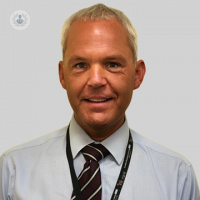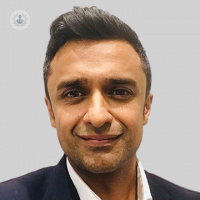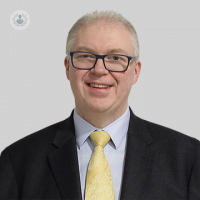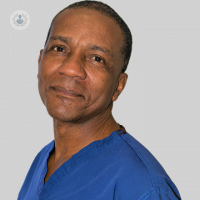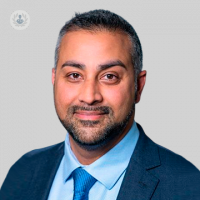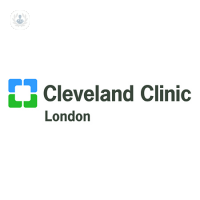What is primary sclerosing cholangitis (PSC)?
Primary sclerosing cholangitis (PSC) is a chronic liver disease that affects the bile ducts. The disease causes inflammation and scarring in the bile ducts which causes the ducts to harden and narrow, affecting the transfer of bile liquid, which is used for digestion, from the liver to the small intestine. The disease eventually leads to cirrhosis of the liver, liver failure and can lead to bile duct cancer and liver cancer.
You can see a gastroenterologist for advice.
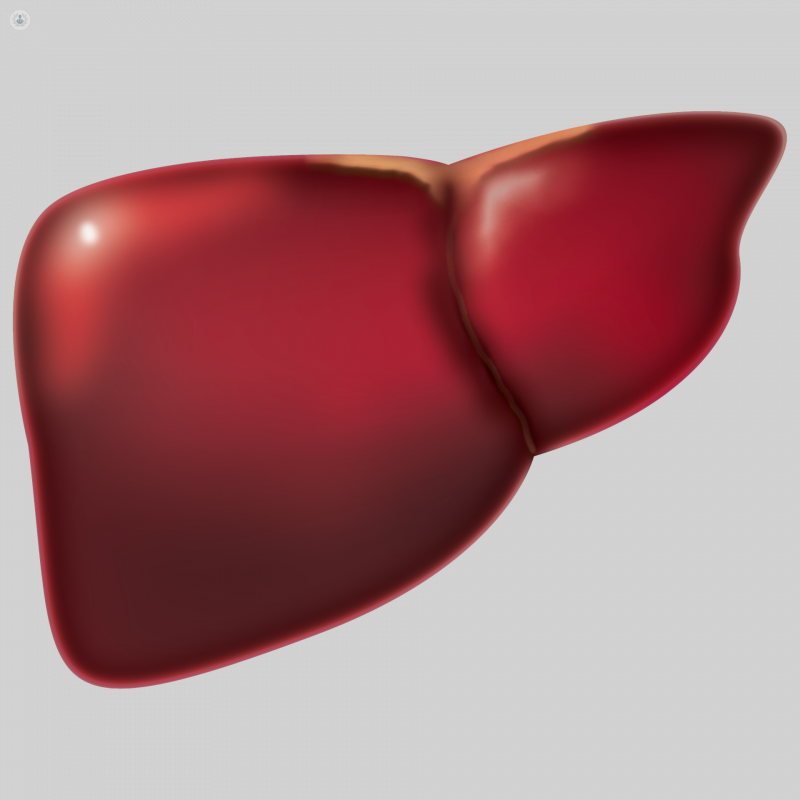
What are the symptoms of PSC?
PSC often doesn’t show symptoms, but some patients may experience debilitating symptoms of the disease. Symptoms of primary sclerosing cholangitis to expect include:
- Itching (otherwise known as Pruritus). This is defined as severe, unexplained itching anywhere on the body that persists no matter how much you scratch
- Fatigue. Feeling tired all the time, even if you get lots of rest can be a symptom of liver damage or PSC
- Jaundice (yellow colour to the eyes and skin)
- Urine that is dark in colour
- Pain in the upper abdomen
- Fever and chills
- Weight loss
Causes of PSC
There is currently no known cause of primary sclerosing cholangitis. It is thought that it could be an autoimmune disease, triggered by a reaction to an infection, though it does not respond to immunosuppressants. It is more common in people who have had inflammatory bowel disease, such as ulcerative colitis or Crohn’s disease.
Who is at risk from PSC?
Primary sclerosing cholangitis can affect people of any age but is more common in those aged between 30 and 50 years of age. It is more common in men, and especially those with inflammatory bowel disease.
How is PSC treated?
No treatment for primary sclerosing cholangitis has yet been developed, but there are a number of ways that the disease can be managed.
The only long-term way of treating the disease is by liver transplant, although this is only done in a very small number of patients with PSC, and it is possible for the disease to return after transplantation.
Some treatments are prescribed to relieve the symptom of itching, and antibiotics may be prescribed to treat acute episodes. Vitamin supplements may also be required, as the disease causes a lack of vitamins A, D, E and K.
Surgery may be required in the form of balloon dilation or stenting to open up severe blockages in the bile duct.
Patients with PSC will survive for an average of 21.3 years before either liver transplant is required, or they suffer a PSC-related death.
11-06-2017 09-27-2023Primary sclerosing cholangitis (PSC)
Dr Carlo Nunes - Gastroenterology
Created on: 11-06-2017
Updated on: 09-27-2023
Edited by: Kate Forristal
What is primary sclerosing cholangitis (PSC)?
Primary sclerosing cholangitis (PSC) is a chronic liver disease that affects the bile ducts. The disease causes inflammation and scarring in the bile ducts which causes the ducts to harden and narrow, affecting the transfer of bile liquid, which is used for digestion, from the liver to the small intestine. The disease eventually leads to cirrhosis of the liver, liver failure and can lead to bile duct cancer and liver cancer.
You can see a gastroenterologist for advice.

What are the symptoms of PSC?
PSC often doesn’t show symptoms, but some patients may experience debilitating symptoms of the disease. Symptoms of primary sclerosing cholangitis to expect include:
- Itching (otherwise known as Pruritus). This is defined as severe, unexplained itching anywhere on the body that persists no matter how much you scratch
- Fatigue. Feeling tired all the time, even if you get lots of rest can be a symptom of liver damage or PSC
- Jaundice (yellow colour to the eyes and skin)
- Urine that is dark in colour
- Pain in the upper abdomen
- Fever and chills
- Weight loss
Causes of PSC
There is currently no known cause of primary sclerosing cholangitis. It is thought that it could be an autoimmune disease, triggered by a reaction to an infection, though it does not respond to immunosuppressants. It is more common in people who have had inflammatory bowel disease, such as ulcerative colitis or Crohn’s disease.
Who is at risk from PSC?
Primary sclerosing cholangitis can affect people of any age but is more common in those aged between 30 and 50 years of age. It is more common in men, and especially those with inflammatory bowel disease.
How is PSC treated?
No treatment for primary sclerosing cholangitis has yet been developed, but there are a number of ways that the disease can be managed.
The only long-term way of treating the disease is by liver transplant, although this is only done in a very small number of patients with PSC, and it is possible for the disease to return after transplantation.
Some treatments are prescribed to relieve the symptom of itching, and antibiotics may be prescribed to treat acute episodes. Vitamin supplements may also be required, as the disease causes a lack of vitamins A, D, E and K.
Surgery may be required in the form of balloon dilation or stenting to open up severe blockages in the bile duct.
Patients with PSC will survive for an average of 21.3 years before either liver transplant is required, or they suffer a PSC-related death.
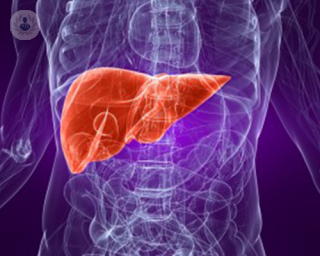

What is primary sclerosing cholangitis (PSC) and how is it treated?
By Dr Deepak Joshi
2025-02-09
Primary sclerosing cholangitis (PSC) is a rare type of liver disease that involves the inflammation and scarring of the bile ducts. PSC is an area of hepatology that is being researched so that we can learn more about this uncommon disease and find out better ways to treat it. See more


Liver cancer causes, symptoms, outlook and treatment
By Professor Shahid Khan
2025-01-28
Primary liver cancer is estimated to be one of the most common causes of death from cancer globally. It is particularly dangerous due to its lack of early warning signs. Professor Shahid Khan is a leading London gastroenterologist and hepatologist, with a special clinical interest in the treatment of liver cancer - learn from him about the causes, symptoms, outlook and treatment of the condition. See more
Experts in Primary sclerosing cholangitis (PSC)
-
Dr Deepak Joshi
Hepatology (liver specialist)Expert in:
- ERCP
- Cirrhosis
- Liver disease
- Liver transplant
- Primary sclerosing cholangitis (PSC)
- Pancreatitis
-
Professor Michael A G Heneghan
Hepatology (liver specialist)Expert in:
- Cirrhosis
- Autoimmune hepatitis
- Primary sclerosing cholangitis (PSC)
- Liver cancer
- Liver transplant
- Viral hepatitis
-
Dr Jude A. Oben
Hepatology (liver specialist)Expert in:
- Autoimmune hepatitis
- Fatty liver
- Haemochromatosis
- Liver function tests
- Primary biliary cholangitis (PBC)
- Primary sclerosing cholangitis (PSC)
-
Dr Michael Chapman
GastroenterologyExpert in:
- Endoscopy
- Abdominal pain
- Primary sclerosing cholangitis (PSC)
- Primary biliary cholangitis (PBC)
- Pancreatitis
- Liver disease
-
Dr Vishal Chandrakant Patel
GastroenterologyExpert in:
- Liver disease
- Autoimmune hepatitis
- Fatty liver
- Cirrhosis
- Primary biliary cholangitis (PBC)
- Primary sclerosing cholangitis (PSC)
- See all

Cleveland Clinic Moorgate Outpatient Centre
Cleveland Clinic Moorgate Outpatient Centre
55 Moorgate, EC2R 6BH
No existe teléfono en el centro.
By using the telephone number provided by TOP DOCTORS, you automatically agree to let us use your phone number for statistical and commercial purposes. For further information, read our Privacy Policy
Top Doctors

Westminster Bridge Consulting Rooms at St Thomas' Hospital Private Healthcare.
Westminster Bridge Consulting Rooms at St Thomas' Hospital Private Healthcare.
Westminster Bridge Road, London
No existe teléfono en el centro.
By using the telephone number provided by TOP DOCTORS, you automatically agree to let us use your phone number for statistical and commercial purposes. For further information, read our Privacy Policy
Top Doctors

Cleveland Clinic London Hospital
Cleveland Clinic London Hospital
33 Grosvenor Place, SW1X 7HY
No existe teléfono en el centro.
By using the telephone number provided by TOP DOCTORS, you automatically agree to let us use your phone number for statistical and commercial purposes. For further information, read our Privacy Policy
Top Doctors
-
Cleveland Clinic Moorgate Outpatient Centre
55 Moorgate, EC2R 6BH, Central LondonExpert in:
- Digestive
- Cardiology
- Dermatology
- Diagnostic Imaging
- Diagnostics
- Obstetrics and Gynaecology
-
Westminster Bridge Consulting Rooms at St Thomas' Hospital Private Healthcare.
Westminster Bridge Road, London , SE1 South Bank LondonExpert in:
- General Surgery
- Orthopaedic surgery
- Plastic surgery, reconstructive and aesthetics
- Endocrinology
- Obstetrics and Gynaecology
- Paediatrics
-
Cleveland Clinic London Hospital
33 Grosvenor Place, SW1X 7HY, Central LondonExpert in:
- Cardiology
- Colorectal surgery
- Minimal access surgery (keyhole surgery)
- Gallbladder surgery
- Diagnostic Imaging
- Ultrasound
- See all
- Most viewed diseases, medical tests, and treatments
- Liver cancer
- Alzheimer's disease
- Nutrition
- Abdominal pain
- Anxiety
- Stress
- Digestive diseases
- Intestinal pseudo-obstruction
- Hirschsprung's disease
- Anorectal malformation
